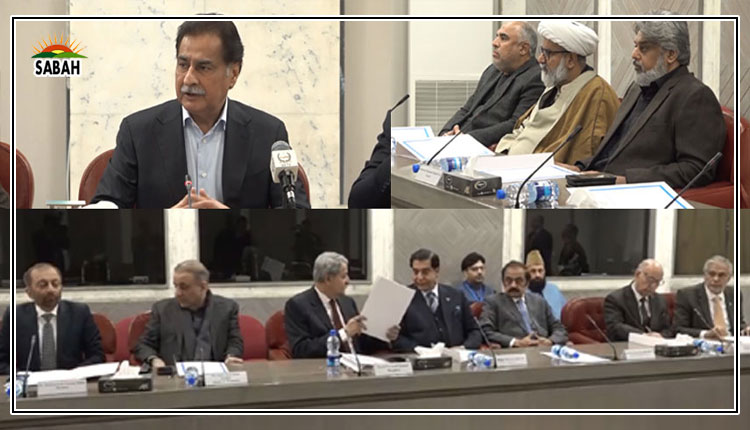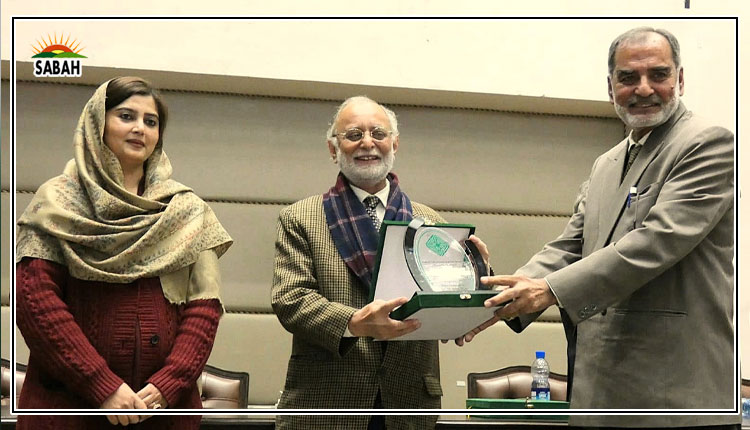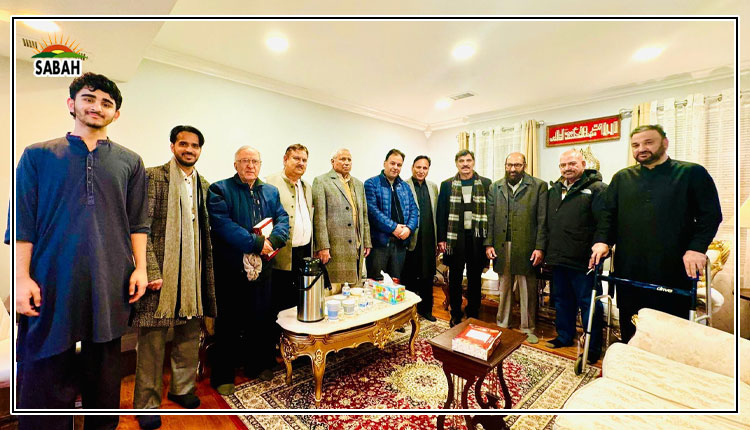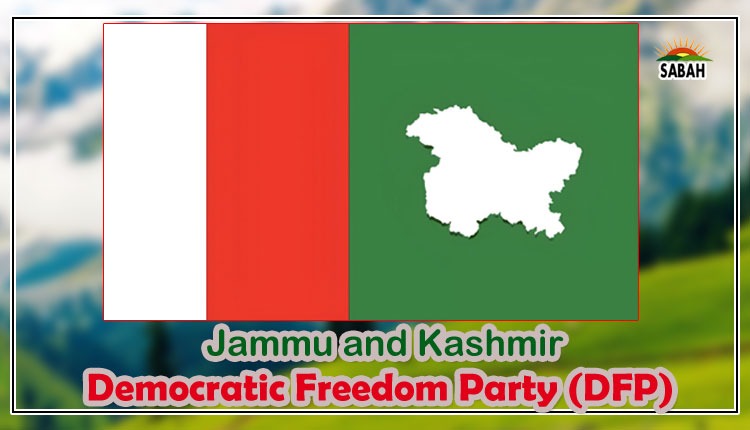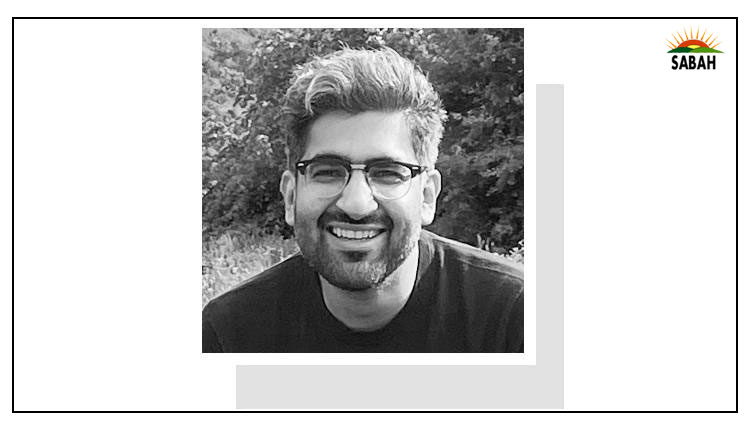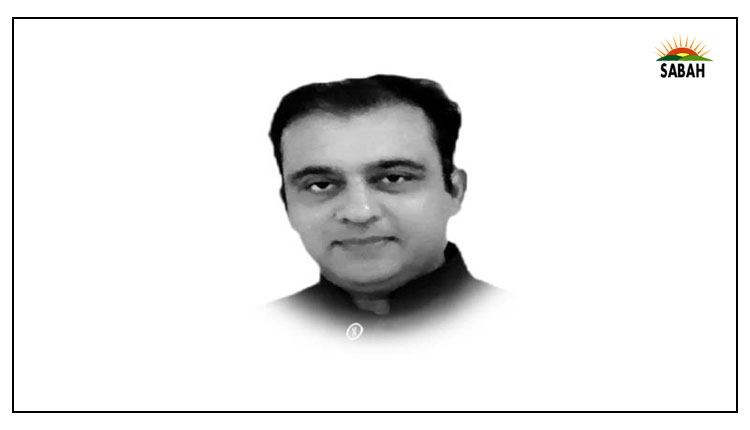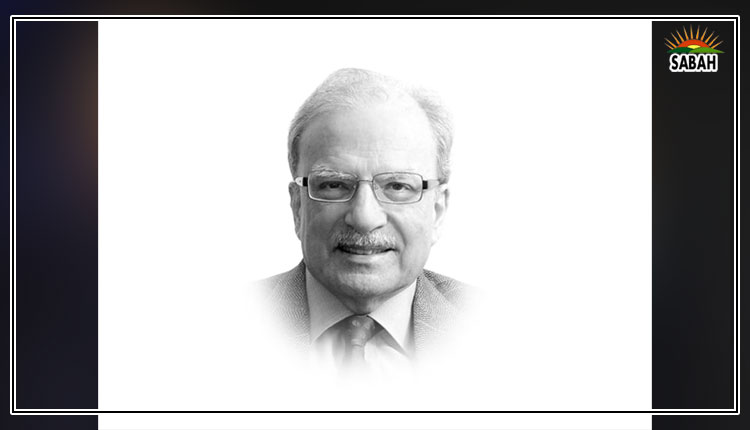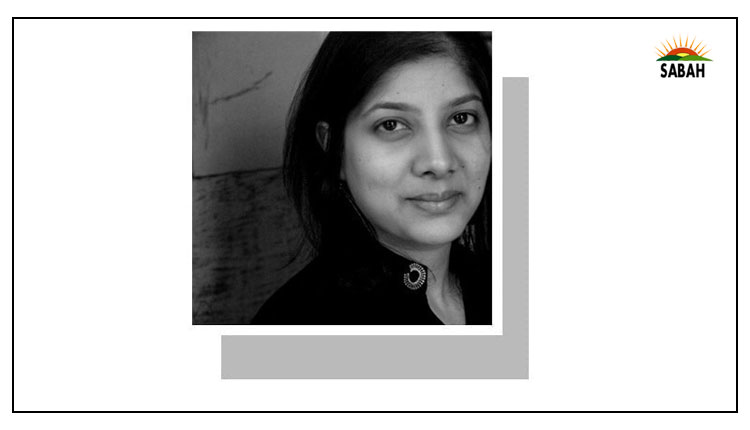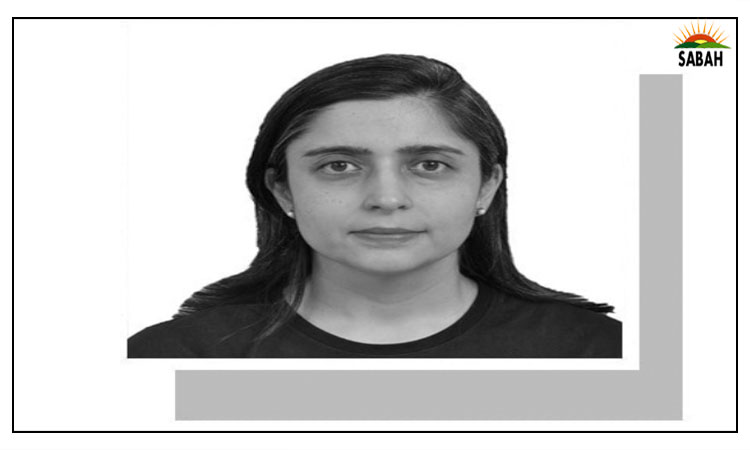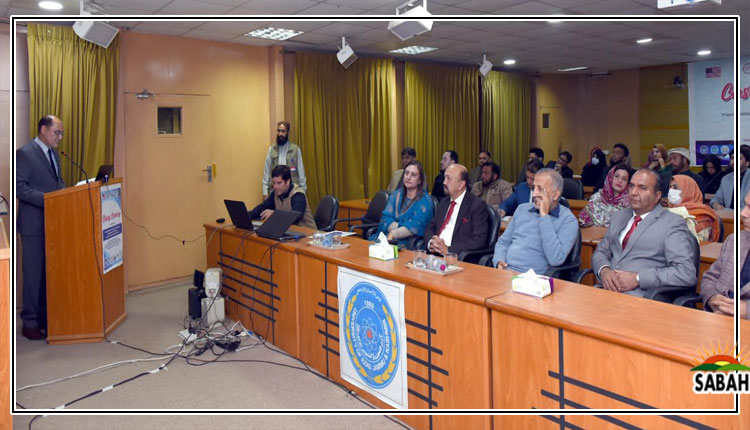Speakers call for collaborative efforts to save local languages in AJK & GB
MUZAFFARABAD, Nov 23 (SABAH): Speakers at a ceremony stressed the need for making conscious collaborative efforts to save the endangered vernaculars being spoken in Azad Jammu and Kashmir (AJK) and Gilgit-Baltistan (GB).
Addressing the concluding ceremony of a project implemented to build capacity faculty of public sector Universities of AJK and GB in Language Documentation was held at City Campus of the University of Azad Jammu and Kashmir, the speakers highlighted that dozens of local and regional languages in AJK and GB are facing imminent threat of extinction.
The project funded by US Government was implemented by the University of Azad Jammu and Kashmir in partnership with San Jose State University, California, USA was aimed to strengthen the capabilities of Public sector Universities of AJK and GB in language documentation. The United States Educational Foundation in Pakistan (USEFP) monitored and administered project.
Speaking on the occasion Chief Guest of the event Secretary Kashmir Cause, Arts and Languages, Registrar University of Azad Jammu and Kashmir Prof. Dr. Ayesha Sohail, Project Director Dr. Abdul Qadir Khan and others asserted that regional languages are facing extreme threats and are at verge of annihilation.
“We must take some solid steps to preserve the dying languages that carrying with them the centuries-old history, civilization, and culture of the region”. They added.
Sharing salient features and success stories of the project, the Director, Prof. Dr. Abdul Qadir Khan told the participants that under this program, training was provided to the faculty members of AJK and GB universities in basic linguistic analysis, language documentation methods, language documentation software (ELAN, FLEX, Audacity), data management, besides providing an opportunity for fieldwork experience.
Dr. Khan told that twenty seven participants were selected for the capacity building training program to document endangered languages in the region. “These participants included twenty one Linguistic Faculty from seven public Sector Universities of AJK and GB and six language activists”, he informed.
Dr. Qadir further told that these participants visited Hunza,Nagar and Skardu districts of GB during the field trip and worked closely with Shina, Khowar, Wakhi, Balti, Burushaski, and Domaaki language speakers.
After the field work, the trainees annotated the collected data and also conducted one day workshops, seminars and walks on language documentation in their respective universities. “35 members and 180 students and language activists were trained through cascading workshops in seven universities”, he added.
Terming the initiative a tremendous success, Registrar of the university and Co-P1 Prof. Dr. Ayesha Sohail thanked all the individuals and institutions, especially the American Educational Foundation, for their keen interest and support in documenting the endangered languages of the region.
She expressed her deep gratitude to the national and international linguistic experts for their support and especially appreciated the support of the American Educational Foundation in this regard.
Speakers on this occasion congratulated the UAJK for initiating this important training program to enhance the capacity of the faculty to document the regional language for the academics of public sector universities in Azad Kashmir and Gilgit-Baltistan.
Dr. Chris Donlay, San Jose State University California, USA (Online), Shahram Niazi, USEFP representative (Online), Meritorious Prof. Dr. Nadeem Haider Bukhari, Dean faculty of Engineering, Prof. Dr. Sadaat Dar, Dean Health Sciences, Dr. Bashir ur Rehman Kantt, DPI colleges, Prof. Dr. Abdul Rehman, Engineer Faisal Butt, Director Jehlam Valley Campus, Resource persons, participants from seven participating universities, language consultants from GB and M.Phil and PhD Scholars attended the event.
Certificates and shields were presented to the participants who successfully completed the training as Resource Persons and the Volunteers.


